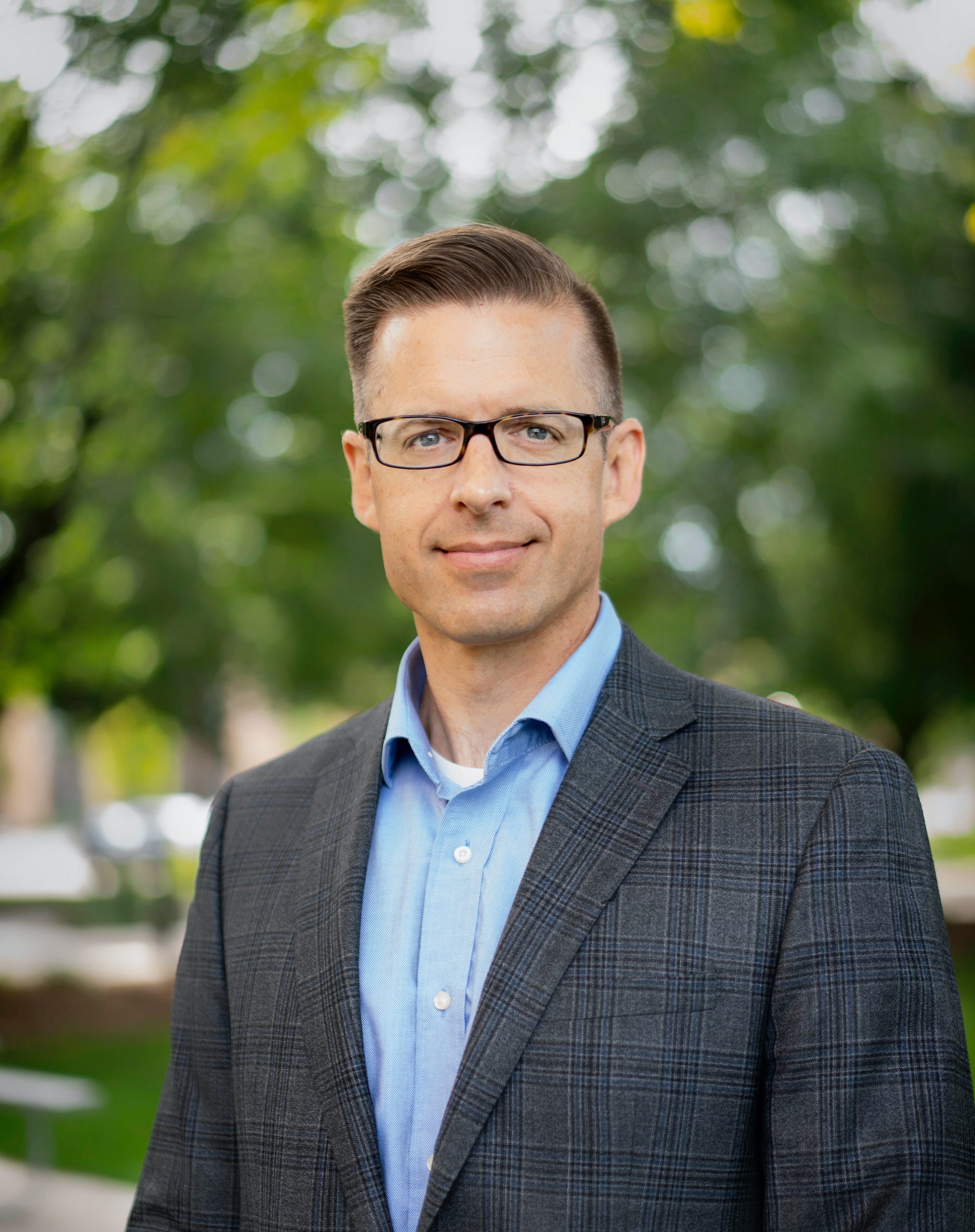Welcome to the Gospel Reverb podcast. Gospel Reverb is an audio gathering for preachers, teachers, and Bible thrill seekers. Each month, our host, Anthony Mullins, will interview a new guest to gain insights and preaching nuggets mined from select passages of Scripture in that month’s Revised Common Lectionary.
The podcast’s passion is to proclaim and boast in Jesus Christ, the One who reveals the heart of God, Father, Son, and Holy Spirit. And now onto the episode.
Anthony: Hello, friends, and welcome to the latest episode of Gospel Reverb. Gospel Reverb is a podcast devoted to bringing you insights from Scripture, found in the Revised Common Lectionary, and sharing commentary from a Christ-centered and trinitarian view.
I’m your host Anthony Mullins, and it’s my delight to welcome our guest, Dr. Dwight Zcheielle. Dwight is Professor of congregational mission and leadership at Luther Seminary. He’s the author of several books, including Embracing the Mixed Ecology: Inherited and New Forms of Christian Community Flourishing Together, also Leading Faithful Innovation: Following God into a Hopeful Future, and Participating in God’s Mission: A Theological Missiology for the Church in America. Dwight is an ordained minister in The Episcopal Church.
Dwight, thanks for being with us and welcome to the podcast. It’s so good to have you, and since this is your first time joining us as a guest, we’d like to know you a little bit, your story, projects you’re currently working on, and how you’re participating with the Lord Jesus Christ.
[00:01:40] Dwight: Thanks so much, Anthony, and it’s just so great to join you all.
I grew up in a secular home in California. I’ve lived in Minnesota now for 20 years, and so it’s pretty crazy that a Californian would survive 20 Minnesota winters. But I grew up really in a story that I think is pretty common now in American culture around really writing your own story, if you will, and having to go your own way and create your own sense of community and find meaning and purpose where you can. And I encountered Jesus and the gospel as a kind of young adult, and it really revolutionized my life, freed me, and reoriented me in every way, really.
And so, my work as a missiologist really comes out of a concern for those neighbors who haven’t heard the gospel and how the church can join those neighbors, love them, listen to them, and faithfully witness to the story we have in Jesus which is life. And so, that’s what my work has been on, and I’ve done that partly through just being involved in the missional church conversation and the kind of later stages of that in the early 2000s into the 2010s when that was a primary conversation going on around the church in America.
And then spending quite a few years really trying to figure out, okay, if we work out the theology on it’s God’s mission that we’re participating in, what does that really look like in practice? And so, I spent a lot of time working with local churches trying to figure out what are the practices that help them actually join God’s mission in their place — learned a lot along the way. And then recently I’ve been working on this kind of framework which comes from the UK, of thinking about a mixed ecology, of lots of different forms of church, traditional inherited church, as well as church plants, fresh expressions, creative out of the box forms of church that are needed to reach the variety of people who are in today’s neighborhoods. And so, that’s the last book that I did with my wife, Blair. And just trying to help expand some imagination around that and think about how these pieces fit together.
[00:04:08] Anthony: It’s fascinating work and it really does lead into the question I wanted to ask you of particular importance to me. I’ve seen evangelism done in such a way, Dwight, that it felt like it was completely unhitched with a faithful theology. And what I saw happening, and I’d be curious to hear your thoughts on this, the church could end up doing mission work for God, like “God, look what I’ve done. I’ve slayed the dragon. I’ve saved all these souls,” but without realizing the vitality of mission with God, that it’s God’s mission and that he’s at work in the neighborhood by his Spirit.
So, is that a fair assessment? And I’m just curious, how should Christology theology inform missiology. Do you address it in your book Participating in God’s Mission, and if so, how did it work out?
[00:04:58] Dwight: Yes. What you’re describing is I think what in the field of missiology is sometimes talked about as a kind of Copernican revolution that happened really in the mid-twentieth century around thinking about God’s mission and God as the primary missionary, if you will, that God’s Trinitarian life is a missional life. It’s a life that’s not closed in on itself, but it’s creative and outward reaching, ecstatic in the true kind of Greek sense of that, reaching beyond. And that it is primary in fact. And that we know that that mission through Christ and the Spirit, Irenaeus’ “two hands of God in the world today,” right?
And so, the church exists as a kind of product of and participant in that mission, which means that rather than the church having to think about, okay, “what do I need to do for God?” as you’re mentioning, it’s “what is God doing?” How might we discern what God is actively doing in our context? And then, how might we join in? And one of the really important pieces of that then becomes that discernment is really the primary posture, if you will, for the church.
So, I like to talk about, the Holy Spirit should be the primary leader of the church …
[00:06:21] Anthony: Yes.
[00:06:22] Dwight: … not any human leader, but the Holy Spirit. And then the responsibility of those of us who are entrusted with leading local churches is to help the community discern and join what the Holy Spirit is doing and to witness to Christ into the gospel in an embodied way, in joining what God’s doing in the neighborhood.
And I think the backdrop to this, which I think we should just name is in Western cultures, the kind of secular imagination that comes out of modernity where it’s so easy for people to simply experience the world with God’s agency and presence bracketed out, if you will. And it’s a long kind of philosophical history of that going back into the Enlightenment, which brought many gifts and also some real liabilities, if you will, to thinking about this question of how the church engages with neighbors. And so, part of what we need to renew and rediscover is imagination for God’s active presence in agency in our local contexts. And then the capacity to test the spirits, to faithfully discern and participate in those, the movement of God in our place.
And that’s something that I think for a lot of local churches, they’re simply not organized around or their culture is not organized around. It’s still often, mission is something we do over maybe 5% of the time with 5% of the people in some programmatic way, rather than a more holistic understanding where all of the whole people of God, all disciples, are called to discern and join in in all of life wherever God’s placed us with what God is doing and to be witnesses there. And, of course, we love those kinds of organized outreach activities that we might do. And they’re wonderful, and they need to be complimenting a much more holistic, whole of life kind of approach.
[00:08:32] Anthony: Preach. I’m really compelled by this conversation. I’d love to dig deeper. Maybe we can have a podcast at some point and just talk about this matter. But just really quickly, I’m curious you talked about practical expressions of this.
Can you give our listening audience maybe a practical way of group discernment? Say there’s a fresh expression of church. What would you advise, guide a church to do to really discern what the Lord is doing in their context? Any practical advice?
[00:09:05] Dwight: Yeah, absolutely. So, I think it has to begin with prayer and Scripture and a real capacity to pay attention to God’s presence and movement. So, prayer is again, … and I think multiple ways of thinking about prayer. I think the rich variety of traditions in the Christian, in our Christian heritage around how do we develop our ability to attend to God, right, to listen to God through prayer, is really important.
So, there’s lots of ways we can do that. But then we need to make sure that the primary story shaping our engagement with our neighbors and thinking about this is in fact the biblical narrative and not some other story, because we live in a culture that is very transactional. It’s very much about fixing and it’s very easy then to reduce our neighbors to objects either of attraction into our organized church activities or fixing — they’re our neighbors, we need to fix them, because there’s something wrong with them, right? Rather than, I think, a more holistic understanding of, God’s agency is primary. Our neighbors are agents as well, or subjects. And we’re called to be in relationship with them — that’s through listening and loving.
And so, yes, some concrete practices that come out of that. I think developing our prayer capacity, engaging in scripture. And there are a variety of ways that I’ve seen that happen in communities beyond a kind of more formal Bible study. So often that could be simply like a practice that I’ve used a lot. It’s called dwelling in the Word, and it’s a very simple form of lectio divina in community that builds people’s ability to engage Scripture with a kind of wondering curiosity. And then I think another piece to practice is simply intentionally paying attention to your daily life, right? So that might be, whether it be prayer walks, or whether it be investing some presence in relationship in a particular neighborhood space maybe you’re already connected in, but that you want to bring a kind of spiritual attention to and wonder about where God might be leading you to listen to or love or draw close to various neighbors. And I think the whole Fresh Expressions journey and a lot of those kinds of contextual Christian communities that are emerging right now began very intentionally not with trying to track people into a worship service, but really with joining, listening, loving, forming community, building trust. And out of that, then, discerning what does church need to look like with these people in this place. And it’s so easy. I think we often, as church leaders, we have great ideas for what church should look like. We dream them up and then they may be very different from what actually the Holy Spirit wants to create with particular people that we have in our neighborhoods.
[00:12:13] Anthony: Yeah, recently I saw a survey that only 70 or 77% of Americans state that they have not spoken to a single neighbor in the last two years. And my experience is that often the church mimics culture. And if that’s the case, we can see why we have so many issues, right? That’s got to change.
We’re called to love our neighbors and that means like our literal neighbors like the person that’s sleeping 40 feet away in the next house. They’re my neighbor. Sometimes I think we can get lost behind everybody’s my neighbor, so, I love all my neighbors, but I don’t engage anybody in particular. But we’re called to love our literal neighbor. That’s again, a fascinating discussion. Bless you for the work that you’re doing, Dwight.
Let’s move on to our lectionary text for the month. Our first text is 2 Thessalonians 1:1-4, 11-12. I’ll be reading from the New Revised Standard Version, the updated edition. This is the Revised Common Lectionary passage for Proper 26 in Ordinary Time, November 2.
We must always give thanks to God for you, brothers and sisters, as is right, because your faith is growing abundantly and the love of every one of you for one another is increasing. 4 Therefore we ourselves boast of you among the churches of God for your steadfastness and faith during all your persecutions and the afflictions that you are enduring.
11 To this end we always pray for you, asking that our God will make you worthy of his call and will fulfill by his power every good resolve and work of faith, 12 so that the name of our Lord Jesus may be glorified in you and you in him, according to the grace of our God and the Lord Jesus Christ.
Dwight, if you were giving an expository sermon from this text, what would you herald to the congregation?
[00:14:20] Dwight: It’s a beautiful text and I love the spirit of it. And what I want to begin with is how the text begins with this posture of gratitude and thanksgiving. Right now, it seems like in American culture, one of the predominant emotions is resentment, which I think of almost as the opposite of gratitude.
There’s a lot of grievance. There’s a lot of divisiveness. There’s a lot of sense of scarcity, right? That’s zero sum, that we were all competing and if someone else is thriving, that means that I might, must not be, they’re taking it away from me. There’s all kinds of dynamics and you see it across the political spectrum right now.
So, to begin with a posture of gratitude, like giving thanks for this growth of faith that Paul is seeing in these sisters and brothers in love. It’s increasing, which — this is the game, right, that we as Christians are playing. It is growth in faith and it is love for one another and for our neighbors. And there’s a simplicity to that, that I think it’s easy to lose sight of, right? Growth in faith is about growth in our capacity to be led by God, to place our trust in God, to obey God, to be dependent upon God in a culture that says, informs us, has these messages around that you should really just be only self-reliant, look out for yourself. You can do it yourself. Justify yourself, right? I think we have a massive culture right now of self-justification in a lot of ways.
So, growing in a faith abundantly and loving one another is we learn how to live into, if you will, the life of the Trinity, this life of love that is also about differentiation. It’s like we don’t need to be the same, and yet we need, we can love one another and be joined in one community. So, the fact that Paul is boasting about their love and faith among other churches is I think a beautiful idea. If there’s anything to boast of, right? Paul boasted of his suffering and he boasts of other people’s faith and love rather than all the things that we might be tempted to boast about in a self-justifying way.
Self-justification is very much there in the church too right now. We think about it as all the ways in which, again, we’re trying to save ourselves or do right or deal with whatever sense of guilt we have on our own. And this is a text that just comes out of a spirit, I think, of freedom, spirit of love, spirit of celebration.
And then I want to just touch on verse 4, there, the end of verse 4: “During all your persecutions and the afflictions that you’re enduring.” So, it’s not okay, this is coming, that you’re growing in love and faith because everything’s just so easy. It’s actually very much in the midst of suffering and resistance and persecution.
And I think there’s a piece to that’s important to keep in mind as well. There’s a lot of resistance, just suffering happening generally for people in our world today. We don’t need to remind anyone of that, but also the resistance of what does it mean to follow Jesus in this culture that I think is increasingly post-Christian and many ways, increasingly kind of neopagan right now resembling more in some weird ways, the culture of the first century, Roman imperial context.
So, if I were preaching on this text, I would wonder what does it mean to live as a person of gratitude amidst resistance, persecution, suffering that happens. And to be free to grow and love even amidst that. And I think so often. We look back in our lives on those moments when we’ve faced resistance and adversity and we say, okay, those were the times I did grow in love and they’re painful, but what might God be doing in your life right now through those tough passages to grow you in faith and love?
[00:18:55] Anthony: I saw quote just recently, and I’m not sure who the source was, but it said, “Gratitude is the wine of life, and so, it’s okay to get drunk drinking gratitude. Live a life of gratitude.” And I agree with you, brother.
Verse 11 says, “God will make you worthy of his call.” What in the world does that mean, and how do we interpret that?
[00:19:21] Dwight: Yeah, it’s like another great text in this: “God will make you worthy of his call.” I think, again, just to go back to this basic theme of gratitude and gift. So, I hear this as a message about grace. Again, you don’t need to make yourself worthy of God’s call by being the one who’s just trying harder or again, justifying yourself. It is God’s gift. God will make you worthy. You don’t need to do it. It’s God’s work. And I’m a real kind of student of the reformation in the great breakthrough that Martin Luther had around justification as gift in this as I hear this text, so that we have this gift. God’s making us worthy of his call. And then it goes on to say, we’ll fulfill it by his power. By his power, not our power. By his power. Every good resolve and work of faith. So, you have this sort of justification then vocation, service, loving, work of faith that follows from that dynamic going on in this text that I think is really important.
And I think for us to be really clear about that. Again, I just think there’s not enough grace in today’s culture, in today’s society by any stretch, and not enough grace so often in the church as well. It’s so easy for churches to simply ask people, “What are you doing to make yourself worthy of God,” rather than just going back over and over again, “God will make you worthy.” And that is, it’s God’s action. It’s God’s claiming and calling, and then it’s God’s power that will bring forth from us those good works, those works of service so that God’s, that Jesus’ name may be glorified. I love again how Paul ends this passage with “according to the grace of our God and the Lord Jesus Christ,” just in case you missed it. Let’s come back to the grace thing.
[00:21:37] Anthony: Yeah, this reminds me of a statement that Eugene Peterson made about discipleship, and I see a connection here, and what he said at first can sound counterintuitive because he said discipleship is focusing less and less on ourselves and more and more on Christ.
And it’s his work. It’s his power, it’s his presence. And yes, we have to be attentive to what the Lord is doing in us. I don’t think Eugene would ever say, you’re not attentive to that, but let’s fix our gaze on him. He’s the one who fulfills these things by his power. And that’s what I hear when we come to a text like this. This is God at work in us, right?
[00:22:19] Dwight: Yes, exactly. Exactly. And I don’t know about you, but I just find that to be great news. Because if it’s up to me, forget it. And I think one of the reasons why we see a real kind of stream of dimension of despair and anxiety in our culture right now is because this theme of grace is less and less present.
And I think people who are living in a more secular or neopagan kind of cultural orientation where it’s all up to you to figure it out, it’s all up to you to secure your place — that is an enormously heavy burden to place on people. And the message of grace is just not being heard by people. And in fact, what you get instead is condemnation, judgment all over the place.
[00:23:23] Anthony: Yeah. If Romans 8:1 tells us there is no condemnation in Christ Jesus, if he doesn’t condemn us, I don’t think he’s calling us to do it. Let it be so, Lord.
Alright, let’s transition to our next pericope of the month. It is 2 Thessalonians 2:1-5, 13-17. It is a Revised Common Lectionary passage for Proper 27 in Ordinary Time, which is November 9. Dwight, we’d be grateful if you read it for us, please.
[00:23:56] Dwight: I’d be happy to.
As to the coming of our Lord Jesus Christ and our being gathered together to him, we beg you, brothers and sisters, 2 not to be quickly shaken in mind or alarmed, either by spirit or by word or by letter, as though from us, to the effect that the day of the Lord is already here. 3 Let no one deceive you in any way, for that day will not come unless the rebellion comes first and the lawless one is revealed, the one destined for destruction. 4 He opposes and exalts himself above every so-called god or object of worship, so that he takes his seat in the temple of God, declaring himself to be God. 5 Do you not remember that I told you these things when I was still with you?
13 But we must always give thanks to God for you, brothers and sisters beloved by the Lord, because God chose you as the first fruits for salvation through sanctification by the Spirit and through belief in the truth. 14 For this purpose he called you through our gospel, so that you may obtain the glory of our Lord Jesus Christ. 15 So then, brothers and sisters, stand firm and hold fast to the traditions that you were taught by us, either by word of mouth or by our letter. 16 Now may our Lord Jesus Christ himself and God our Father, who loved us and through grace gave us eternal comfort and good hope, 17 comfort your hearts and strengthen them in every good work and word.
[00:25:29] Anthony: Amen. I see a theme that constantly is present in Thessalonians, and that is the coming of Jesus Christ, being prepared for the second arrival, an awareness of the Lord Jesus Christ.
And I’m curious because sometimes I hear Christians talk about the kingdom to come in its fullness and it’s like we’re waiting around just trying to escape to that, as opposed to the fact that the Lord Jesus Christ is coming, having a Word to speak to us in the here and now. What say you, how do you speak of the second coming of Jesus?
[00:26:07] Dwight: Yeah, so I think it’s really important to step back and think about how time is conceptualized in different cultures. And if you think about what’s so powerful about biblical faith is the sense of God acting in history, which is very revolutionary. I think we take it for granted, but compared to so many cultures in the world which see this sort of endless cycles of time repeating itself. But the idea that there is a beginning, middle, and end, if you will, to history, or there are these seasons, if you will, that are up to God is a really powerful biblical teaching. And so, this teaching on the Parousia is a way to stress that.
And I always want to approach it with fear and trembling and thinking about the depths of the mystery of all of this, because of course, very much one of the core messages of the Thessalonian correspondence is, okay don’t spend too much time trying to worry about exactly when this is coming, right? This is God’s thing. And so, we need to be living into a new reality in light of that future. But that future is in fact one of the healing and restoration of the whole world. It’s not simply the escape of certain people out of the world, which I think has been one of the ways in which this has been imagined.
And often we get a very diminished soteriology is a result of that. And so, I think the idea in our culture, which I think in the modern West, has a kind of narrative of progress that has been built in since the Enlightenment, which in some ways, again, would not have happened without Christianity, without a sense that time has a trajectory — that is really a Christian idea or at least a going back into the Jewish heritage as well — that we live in this culture that says things should be just getting better and better. Humans should be being perfected through technology, education, science, and all this stuff.
And of course, that is really over the last century since World War I, in many ways been deeply challenged and disrupted and broken down, and yet it still functions, I think, in many ways. And I think people get surprised when their vision of progress isn’t being realized and people feel like, oh, we’re going back. You hear this language a lot, right?
And so, the biblical teaching, which is not progress in that sense of self, human self-salvation or perfectibility through technology, science, or the sell, the state of the market, if you will, but rather that God is in control of history, that God is active in history, and we live in this in-between time where we have this tangible experience of a kind of down payment, if you will, on God’s future, on the kingdom that we experience.
We know it. It’s real. It lives in us and among us and around us in different ways. And yet we yearn for, we look for its completion. It’s bringing all of creation to rights and the restoring of relationships that are broken and the healing of all that’s been that’s been wounded and destroyed and all of that. We have that hope that is a proper hope that we can look forward to and we hold it with just incredible humble mystery, a posture of not trying to manage and fix when that future comes, but trusting that it is the ultimate story.
[00:30:02] Anthony: Looking at verses 13 through 17, how would you herald the God that’s revealed in Jesus Christ here?
[00:30:11] Dwight: Yeah. So again, I love this language of first fruits for salvation and this, again, this stress and this text around God acting to sanctify us through the Holy Spirit, to make us holy, to restore us to holiness, to right relationship with God and each other and the world. And to do that through truth, through a different way of understanding reality that is present in Jesus, right? Jesus as the locus of God’s Word, as the locus of that truth that we know tangibly through his ministry and his presence.
And so, again, the idea here that comes through in this of gratitude and God’s action to choose and claim us being primary, I think is really important to stress. And then, this message about glory is also really interesting, too.
So, what is the glory of our Lord Jesus Christ? You think about Paul’s cultural context. Glory had certain associations in a Roman imperial context, and it was all about military conquest. Military heroes were glorious. Glory of Caesar and all that.
The glory of our Lord Jesus Christ, right? Even using that word, kurios, Lord, which would normally apply to Caesar. Here’s the guy who was crucified shamefully by the Roman Empire. He’s actually the glorious one. How revolutionary this is!
So, if our ideas of glory are shaped by human cultures and empires, we will miss the profoundly subversive message here of glory being found in a God who is willing to join us, suffer with us, and for us. And claim us in the very worst of human circumstances. That’s the kind of glory we know that is a love that shows up, that is present and reaches through even the hate that we send and bring to that very person, right? If we’re the ones crucifying Christ and Christ is saying, “Father, forgive them. They don’t know what they’re doing.”
[00:32:33] Anthony: It’s such good news. Such good news. Yes. Yes, it is. And I like to say to churches, the gospel is good news and so, this is what we need to speak to one another. We speak life. If there’s one place, we should show up each and every week and expect to hear good news, it should be the church of Jesus Christ proclaiming his word. Amen and amen.
Let’s transition to our next pericope of the month. It’s 2 Thessalonians 3:6–13. It is a Revised Common Lectionary passage for Proper 28 in Ordinary Time, November 16.
Now we command you, brothers and sisters, in the name of our Lord Jesus Christ, to keep away from every brother or sister living irresponsibly and not according to the tradition that they received from us. 7 For you yourselves know how you ought to imitate us; we were not irresponsible when we were with you, 8 and we did not eat anyone’s bread without paying for it, but with toil and labor we worked night and day so that we might not burden any of you. 9 This was not because we do not have that right but in order to give you an example to imitate. 10 For even when we were with you, we gave you this command: anyone unwilling to work should not eat. 11 For we hear that some of you are living irresponsibly, mere busybodies, not doing any work. 12 Now such persons we command and exhort in the Lord Jesus Christ to do their work quietly and to earn their own living. 13 Brothers and sisters, do not be weary in doing what is right.
So, what’s Paul doing here? Is he inviting us to condemn brothers and sisters who are not living as we are living? He gives an imperative in verse 6, to keep away from people living irresponsibly and according to tradition. Easy for me to say. What’s going on here, Dwight?
[00:34:40] Dwight: Yeah. So, this is a very interesting text for us to wrestle with in today’s church because we, of course, become very uncomfortable often when we think about, we’re supposed to keep away from our sisters and brothers in Christ. And often a lot of churches for good reasons, really want to have a generous spirit of inclusion and not shame or exclude people. But I think part of what we need to get back to is what does it mean to live faithfully in this in-between time as a community, again, justified and sanctified by Christ in the Spirit for a particular purpose of witness and faithfulness in the world? And I wonder to me if Paul in this isn’t saying, look, there are people who are bringing discredit to the gospel in the ways that they are living again, living irresponsibly. Maybe it’s just that they’re like, hey, we don’t need to do any work because we’re expecting Jesus, to come back and take care of the mess. We’re not going contribute to our own livelihood, to loving our neighbor, to serving our neighbor, to being productive kind of citizens of the community
Paul’s saying, “Hey, wait a minute, you’re really missing out on what it means to live in this in-between time and to be the Body of Christ.” And so, I think what’s at stake in this is something really bigger than simply shunning someone. It is about, what is the integrity of our vocation as the church in this time, right? So, when he talks about people living irresponsibly, not doing any work: if to follow Jesus to be a Christian means that we just give up on loving and serving our neighbors, Paul has no patience with that. I think he’s saying, no, no, no. Our witness to our neighbors is going to be not in us withdrawing in that way, but in us actually loving them and serving sacrificially and as Jesus did, and being able to name a reason for the hope that is within us as to why we do that.
I think there’s, of course, lots of different moments in church history. We can look and say people withdrew and gave up everything waiting for Jesus to come back. And then were disappointed in some way and I think God doesn’t really want that. God wants us to be engaged with our neighbors in a way that is, you know, generous and fruitful, because that’s where the witness takes place.
[00:37:33] Anthony: I love how you talk about vocation in the in-between times and this inaugurated eschatology and this vocation, this calling can feel like work, right? At the end of the day, it can feel like work, a heaviness to it.
And Paul gives the statement to not be weary in doing what is right. And so, I’m going invite you to maybe make this personal. Have you experienced weariness in doing good and or witnessed it in others who are close to you? And if so, what would you suggest is underneath that lived experience? And how do we address it?
[00:38:23] Dwight: And yeah. Absolutely. I absolutely have experienced weariness like I think so many of us have, right, in trying to both to follow Jesus and to love others in the context of that. And I think underneath that so often is, what’s our relationship with God? How goes your walk with Jesus, in the sense of, are you grounded in the practices of spiritual presence in which God’s grace is made known to you daily in which you can sink into that embrace?
I think often when I’ve grown weary, it’s when I have fallen into a pattern of self-justification, when I think it’s all up to me, and I’ve got to just work harder, and my own spiritual rhythms and practices have gotten out of whack. And I’m not keeping a Sabbath or I’m not doing the kind of practices of prayer and scripture reading each day or whatever that would ground me in God’s presence.
And I see this sometimes with leaders. It’s very easy as a leader, it can be heady to be at the center of everything and to be the one who’s bringing the energy and really trying to fix everything for everyone and do it all. And I think when we fall into that trap, we very easily grow weary as a way of just missing, I think again, this basic premise that central to faith, a life of faith is trusting that God’s ultimate. And it’s just hard to remember that and practice out of that kind of place. And when we don’t, we really do very easily grow weary and, gosh, we think of a lot of leaders of various sorts, not just pastors, but other kinds of leaders who end up falling into all kinds of misconduct and things like that because they’re just not grounded in that way.
And so, I think it’s important when we think about the importance of spiritual practices in our lives not to think of those as justifying activities on a list of many things to do, we’ve got to tick those boxes, but rather as the spaces through which we are rooted in the vine as branches as in the John 15 kind of way of Jesus and his love. And if we’re living out of some other kind of rootedness, some other kind of soil, if you will, ultimately, we’re not going to bear fruit. We’re going end up burning out.
[00:40:57] Anthony: Yeah, that’s a good word. And I agree with everything you said and you just were speaking about rootedness. I have also found in my own personal walk that when I isolate from community in any way, whether intentionally or unintentionally, that’s where weariness sets in. I just firmly believe healing happens in community. And should we be surprised by that we’re made in the image and likeness of a triune God, Father, Son, and Spirit, a community of other-centeredness. That’s where the good stuff happens. And if we isolate in any way, it’s just not good. It’s unhealthy and, at least for me, that’s where weariness and burnout can set in. A word for all of us. Yeah.
Our final pericope of the month is Colossians 1:11-20. It is a Revised Common Lectionary passage for Reign of Christ Sunday on November 23. Dwight, this is one of my favorite passages, so read it well, brother. No pressure.
[00:42:02] Dwight: All right, so here we go.
May you be made strong with all the strength that comes from his glorious power, so that you may have all endurance and patience, joyfully 12 giving thanks to the Father, who has enabled you to share in the inheritance of the saints in the light. 13 He has rescued us from the power of darkness and transferred us into the kingdom of his beloved Son, 14 in whom we have redemption, the forgiveness of sins. 15 He is the image of the invisible God, the firstborn of all creation, 16 for in him all things in heaven and on earth were created, things visible and invisible, whether thrones or dominions or rulers or powers—all things have been created through him and for him. 17 He himself is before all things, and in him all things hold together. 18 He is the head of the body, the church; he is the beginning, the firstborn from the dead, so that he might come to have first place in everything. 19 For in him all the fullness of God was pleased to dwell, 20 and through him God was pleased to reconcile to himself all things, whether on earth or in heaven, by making peace through the blood of his cross.
[00:43:20] Anthony: Whew. That is a doozy of a passage and I want to give you an opportunity to proclaim it, to just riff on the supremacy of Christ. So, preach, preacher. What would you say?
[00:43:31] Dwight: Oh, yes. This is such a rich — it’s really almost a hymn, I think, or a poem almost, in the way that it is just so rich. And I think where I want to go in this is thinking about these terms, strength, and power: “may you be made strong with all the strength that comes from his glorious power.”
His glorious power, right? From God’s glorious power, from Jesus’ power, which again, is power that’s made known in weakness, that’s revealed on a cross, “so that you may have all the endurance and patience, giving thanks to the Father.” So, this sense of needing to endure patiently. And the root of patience, of course, is to suffer, right?
[00:44:15] Anthony: Yes.
[00:44:16] Dwight: As we’re taking this journey together with an eye toward an inheritance, right? We have this gift that’s coming from God and he’s transferred us from the power of darkness, from the dominion, if you will, of the world and its powers into this kingdom, this reign of his Son, which is this upside-down reign where the crucified God is the ultimate authority, right? It’s turning on its head so much of what we see in our world and its structures. And being transferred into that realm, if you will.
I used to live in Virginia and I used to joke when I lived the, in Virginia, as we talked about, the old dominion and the new creation. I like it. And so, even though we were living still the old dominion of Virginia, we were living in the new creation, right? And so, we’ve been transferred into that kingdom, that new creation. And so, what does this yield for us? It’s this redemption, the forgiveness of sins.
And I think so many of people in our society are living haunted by the mistakes they’ve made, the estrangement and broken relationships that they suffer and don’t know where to turn for an alternative. How, what’s a way out of this, right? And so, people just double down. Again, as we talked about earlier, grievance or resentment or enmity, hate, and things like that.
But Paul here is saying, we have this gift that fundamentally reorients our relationships. And it begins with God’s relationship with us, and that is restored in Christ, right? The forgiveness of sins, the redemption, the freeing from whatever we’ve done, from all of the things that have kept us from God and from one another. We have been transferred into this other reality that we live in. And we have the grace and the power and the strength that comes from that so that we might suffer, endure, serve, minister joyfully, right? This paradox here of freedom and joy that comes through being restored to our kind of relationship that is not about our own kind of self-justification or self-aggrandizement, but really about being joined in Christ to God’s life and then through Christ to one another. We live not to ourselves, but to Christ.
There’s so much here in this text. But I think if we can unpack these words and bring it down to earth for regular people, saying, what is it that’s keeping you from the freedom of trusting that God has made you right with God and is freeing you to be right in right relationship with everyone else in your life?
[00:47:23] Anthony: You know this song, poem, hymn to the supremacy of Christ is a theological tour de force, right? And so, I’m curious from your perspective, what are the theological implications of the statement — and it’s just an awesome statement — that the fullness of God was pleased to dwell in Christ.
[00:47:47] Dwight: So, I love, again, I love this. This is about the incarnation and I think so often, Christians don’t take the incarnation as seriously as we should. There’s a kind of lingering, often Docetism, I think, that happens in the church where people are kind of, “Yeah, yeah, God became flesh, but we’re not really comfortable with like, how that actually works.”
So, I don’t know if you’re a Chosen fan or if you watch The Chosen, but there’s a remarkable. documentary called Jonathan and Jesus. I don’t if you’ve seen that, but …
Anthony: Yes. I haven’t watched it, but I did see it advertised.
Dwight: So, it’s about Jonathan Rumi, who of course is the actor who plays Jesus in The Chosen. And it’s a little documentary following around his own story. It is really quite remarkable. He’s a faithful disciple of Jesus himself. But what’s powerful to me watching that is they show him being in public different places in the world and people will just come up to him and almost ask for a blessing from him or almost fall at his feet just because they know he’s Jonathan Rumi, the actor, and there’s something about the image, the presence of, here’s this person, embodying the Lord. Even it’s just in a show that we’re watching on TV, but the physicality of that, the tangible incarnation of that, has this effect on people. And you see these people just weeping and wanting his blessing.
And I think there’s something in that that’s a reminder of when Jesus came in human flesh to be with us to heal and redeem and restore us. That is the only way that God could restore human nature from the fall to its glory — that taking, sharing our place, taking our place, if you will, is the way, right? And it’s the kind of crazy claim of Christianity, the scandalous claim, right, from the very beginning it’s been offensive to all kinds of people and yet it is the good news for us that God has joined us in the flesh, right?
So, when I read in this about the fullness of God dwelling in Christ, it is to say that — I’ll go back to Martin Luther — that what we know of God’s love is what we see in the life, in the face of Jesus, and particularly in the suffering of Jesus, his willingness to join us in the worst of human experience.
And so, if we can trust that God’s love is that deep and that wide, and that profound, to meet us where we are, even when we hate him, even when we crucify him, then there is nothing that can separate us from the love of God, to get to Romans 8, that there is truly nothing that can that can separate us. And I just think that is a message we need to hear over and over again. We have a lot of stories, a lot of figures in our culture that are trying to be literally influencers, to influence us in different ways. And so many of them are leading us astray from God’s way.
And so, for us to recenter ourselves and say, if we want to know what ultimate reality is like, if we want to know what human nature, what abundant life, a good life is like, we need to focus on Jesus and we see it in him. We see it in the whole of his life, death, and resurrection. And we are to be conformed into that image through the power of the Holy Spirit, through the practices of the community in life together.
[00:52:06] Anthony: Amen and amen. There is no other God behind the back of Jesus. He is the highest resolution image that we have of the very nature and being of God as the writer of Hebrews tells us. And God was pleased to have his fullness dwell in Christ. Hallelujah. Praise God.
Gospel Reverb exists to help pastors and preachers and teachers proclaim the word. And I just want to remind our listening audience that I believe the best kind of preaching leaves the congregation talking about Jesus, not the preacher, not the sermon, but Jesus and the text that was read. So, thank you for what you’re doing.
Dwight, it’s been a joy having you on the podcast. It’s a delight to meet you and we praise God for the work that he’s doing in and through you, especially helping the church understand how we can be swept up in all the good things God is doing through his mission. Thank you so much for joining us, and I also want to thank our team of people who make this podcast possible, Reuel Enerio, Elizabeth Mullins, and Michelle Hartman. It’s a joy to work with them. And again, Dwight, thank you. It’s our tradition on Gospel Reverb to end with prayer, and we’d be delighted if you’d pray for us.
[00:53:21] Dwight: Wonderful. Let’s pray. God, our Creator, we just give you thanks for the ways in which you are renewing the world, the ways in which you have joined us in Christ and bound yourself in love to us to heal all that is broken and estranged and all of the things that keep us from living abundantly. And Lord, we just pray that your Spirit may encourage all of the listeners on this podcast, all of those who are entrusted with the sacred work of proclaiming your Word. May you give them confidence and clarity and wisdom. Help them to listen carefully to their people. Help them to be rooted in you and your presence and your love. And Lord, we just pray for all those neighbors outside of our churches who don’t know your gospel, Lord, that all your people may live into their vocations as witnesses and ambassadors of reconciliation. Lord, we pray for encouragement and hope always in the gospel. We pray this in Jesus’ name and in the power of the Spirit. Amen.
[00:54:32] Anthony: Amen.
Thank you for being a guest of Gospel Reverb. If you like what you heard, give us a high rating, and review us on iTunes, Spotify, or wherever you get your podcast content. Share this episode with a friend. It really does help us get the word out as we are just getting started. Join us next month for a new show and insights from the RCL. Until then, peace be with you!
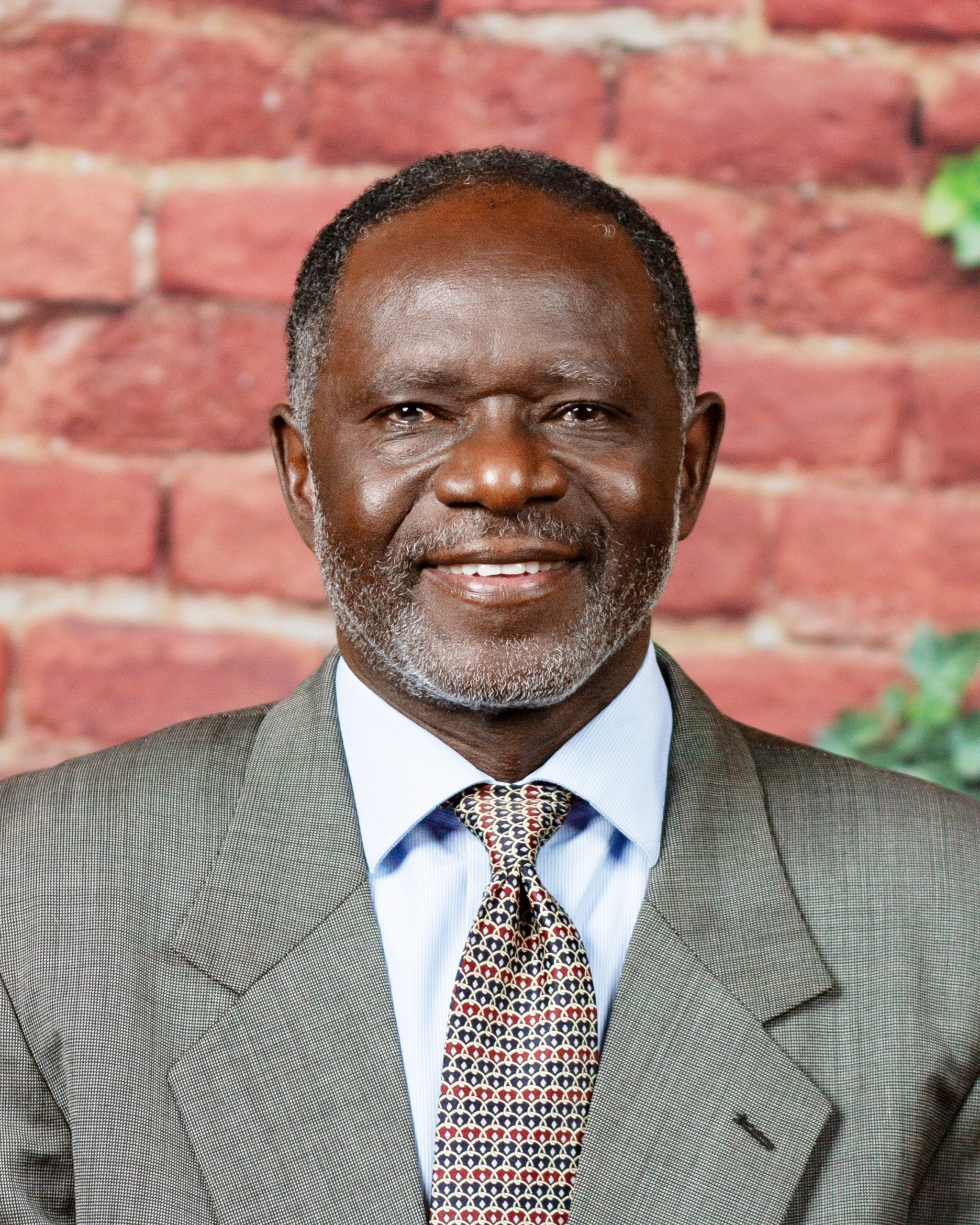 By Kalengule Kaoma, Superintendent of Africa
By Kalengule Kaoma, Superintendent of Africa

 By Theo Okai, Ghana National Director and West Africa Regional Director
By Theo Okai, Ghana National Director and West Africa Regional Director By Cara Garrity, Development Coordinator
By Cara Garrity, Development Coordinator By Paulina Salinas, MTC Coordinator and Pastor
By Paulina Salinas, MTC Coordinator and Pastor
 By Karl Reinagal, Pastor
By Karl Reinagal, Pastor
 By Rose Hamrick, CFO
By Rose Hamrick, CFO
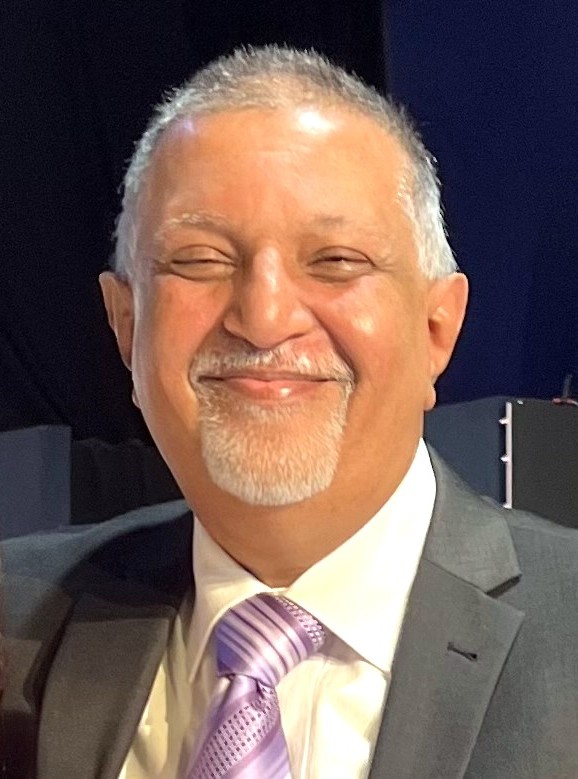 By Bharat Naker, Pastor
By Bharat Naker, Pastor
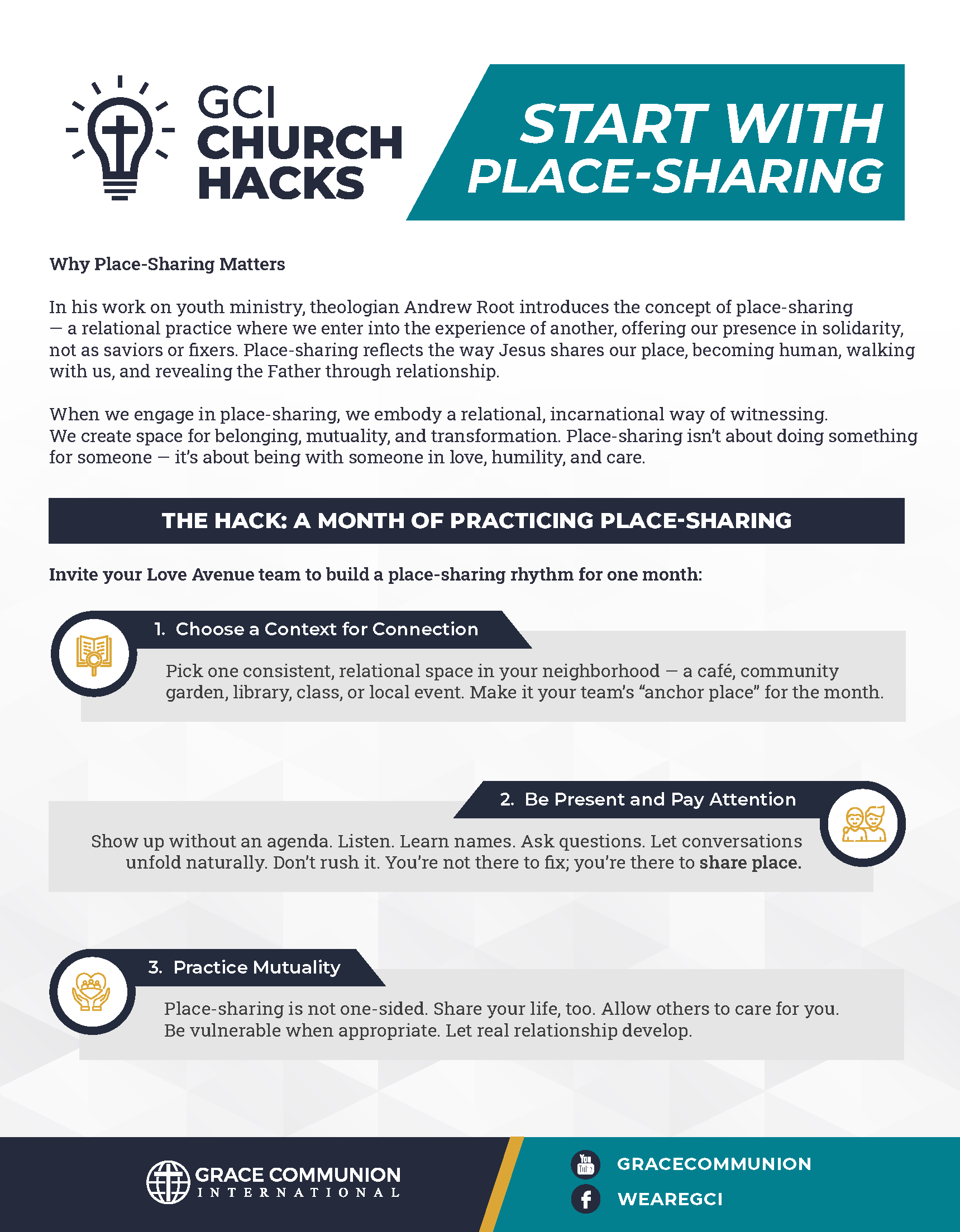
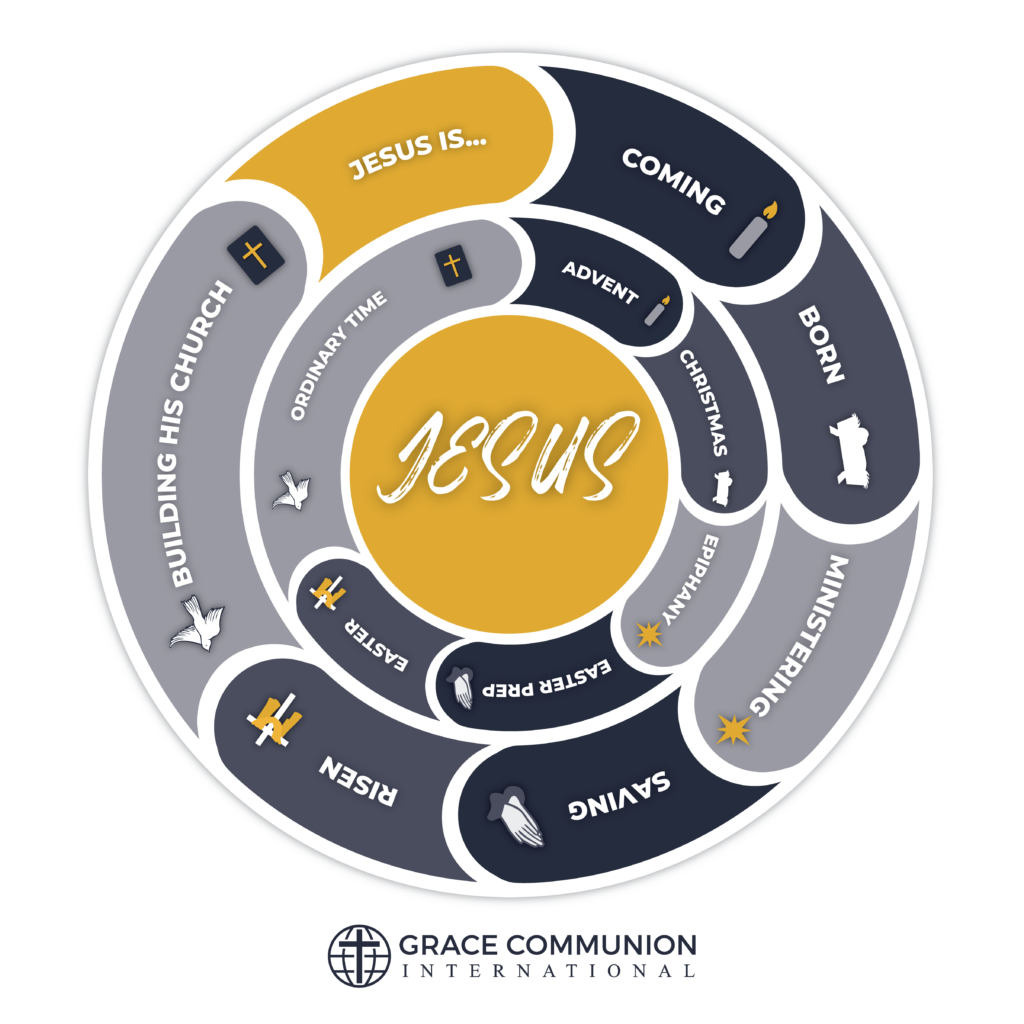


 “What an epiphany! Just think about it. To consult the One who holds all treasure, the One who gives all treasure … whether it is our finances or our resources; [God] is the source, and it all belongs to him, and he’s so generous to share with us. He gives us the opportunity to participate in all that he is doing. We have the opportunity to share the gospel of Jesus Christ, the opportunity to support the kingdom.”
“What an epiphany! Just think about it. To consult the One who holds all treasure, the One who gives all treasure … whether it is our finances or our resources; [God] is the source, and it all belongs to him, and he’s so generous to share with us. He gives us the opportunity to participate in all that he is doing. We have the opportunity to share the gospel of Jesus Christ, the opportunity to support the kingdom.”